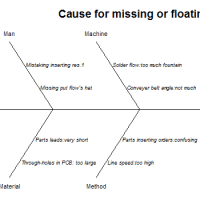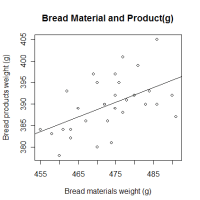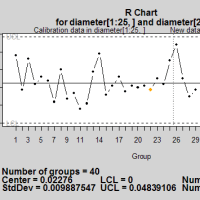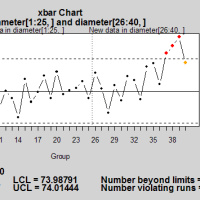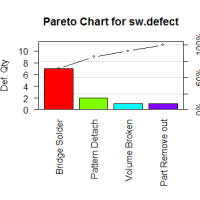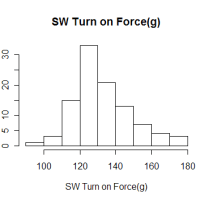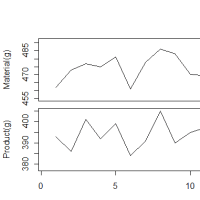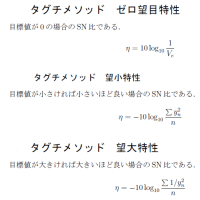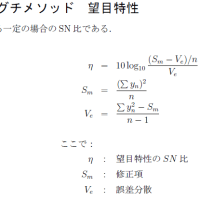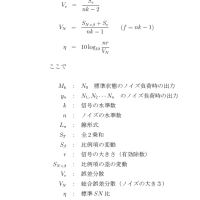続きをさらします.
情報と知識経済のエキサイティングな時である.
先進諸国の工業は,金属-加工から知識創造に移ってきている.情報またはICT革命は,「重さ」と距離の影響を取り除くことを進めている.ポニー速達便の時代には,カンザスシティーからサンフランシスコまでメッセージを送るために,多くの馬,人と日数がかかったが,今日,それは,電磁界が少し揺れることによって,瞬きする間に行われる.我々は、非競合なアイディアの膨張性を誘発するために,問題の限界をゆっくりと解き放っている.
多くの制度が,情報問題の適応反応としてだけの理解がされ,情報の不完全と知識創造を無視する経済モデルは,我々に劣ったガイダンスをしてきた.情報の不完全性の中心的な役割を見ることによってのみ,我々はロバストな制度を設計し,保全することを望むことができる.同様に,暗黙と現地の知識の詳細を理解することは,知識共有または,多様性のダイナミクスと同じ様に,企業,産業または国の競争性を測定するのに大いに役立つ.
知識と情報の生産及び流通の方法が,鋼や車のようなモノと異なることを理解することは避けられない.プロセスでの知識が演じる役割は,正のフィードバックを示す傾向がある.社会及び経済生活で,我々は現在,複数の平衡【均衡】,経路依存(初期条件の感度)とロック・イン効果を示す,自己補強プロセスの遍在を見る.競争にとっての障害がより重要かもしれないが,より大きな分散から集められる利点は,全体より大きいかもしれない.
事実としての知識,正統的な意味で,公共財であり,重要な外部性,市場での独占的または過度の依存を意味する,は,経済効率の結果でないかもしれない.市場実勢の力を信じる我々にとり,挑戦とは公共と民間の間にあるベスト「パートナシップ」を見つけること --役割及び責任の割り当てに,将来の知識経済に不似合いの,過去のパラダイムに影響される事をなくす事である.残念なことに,この新しい協力に対するフレームワークの探索中においての,単純なスローガン(「勝者を指名する」)は,あまり遠くへ,我々を導かない.我々は未知の領域の中にいる.そして,我々は互いの実験から多くを学ぶ.
世界中至る所で,この新しい展望は,公共政策に深遠なる影響を及ぼしている.開発作業では,焦点は無形の知識,制度と文化へと移ってきた.世界銀行は現在以上の知識銀行に変わりつつあり,新しい焦点を影響に入れた,より包括的な開発フレームワークを創り出しつつある.より先進の,産業の経済で,革新と変化の文化を引き起こし,育てようとする挑戦は,確かに気は重い.
その1へ
CONCLUSION 結論
情報と知識経済のエキサイティングな時である.
先進諸国の工業は,金属-加工から知識創造に移ってきている.情報またはICT革命は,「重さ」と距離の影響を取り除くことを進めている.ポニー速達便の時代には,カンザスシティーからサンフランシスコまでメッセージを送るために,多くの馬,人と日数がかかったが,今日,それは,電磁界が少し揺れることによって,瞬きする間に行われる.我々は、非競合なアイディアの膨張性を誘発するために,問題の限界をゆっくりと解き放っている.
多くの制度が,情報問題の適応反応としてだけの理解がされ,情報の不完全と知識創造を無視する経済モデルは,我々に劣ったガイダンスをしてきた.情報の不完全性の中心的な役割を見ることによってのみ,我々はロバストな制度を設計し,保全することを望むことができる.同様に,暗黙と現地の知識の詳細を理解することは,知識共有または,多様性のダイナミクスと同じ様に,企業,産業または国の競争性を測定するのに大いに役立つ.
知識と情報の生産及び流通の方法が,鋼や車のようなモノと異なることを理解することは避けられない.プロセスでの知識が演じる役割は,正のフィードバックを示す傾向がある.社会及び経済生活で,我々は現在,複数の平衡【均衡】,経路依存(初期条件の感度)とロック・イン効果を示す,自己補強プロセスの遍在を見る.競争にとっての障害がより重要かもしれないが,より大きな分散から集められる利点は,全体より大きいかもしれない.
事実としての知識,正統的な意味で,公共財であり,重要な外部性,市場での独占的または過度の依存を意味する,は,経済効率の結果でないかもしれない.市場実勢の力を信じる我々にとり,挑戦とは公共と民間の間にあるベスト「パートナシップ」を見つけること --役割及び責任の割り当てに,将来の知識経済に不似合いの,過去のパラダイムに影響される事をなくす事である.残念なことに,この新しい協力に対するフレームワークの探索中においての,単純なスローガン(「勝者を指名する」)は,あまり遠くへ,我々を導かない.我々は未知の領域の中にいる.そして,我々は互いの実験から多くを学ぶ.
世界中至る所で,この新しい展望は,公共政策に深遠なる影響を及ぼしている.開発作業では,焦点は無形の知識,制度と文化へと移ってきた.世界銀行は現在以上の知識銀行に変わりつつあり,新しい焦点を影響に入れた,より包括的な開発フレームワークを創り出しつつある.より先進の,産業の経済で,革新と変化の文化を引き起こし,育てようとする挑戦は,確かに気は重い.
REFERENCE 参考
- Auerbach, A.J. 1979. “Wealth Maximization and the Cost of Capital.” Quarterly Journal of Economics. August. 433-66.
- --------. 1983. “Corporation Taxation in the United States.” Brookings Papers on Economic Activity. Vol. 2, Washington D.C., Brookings Institution. 451-513.
- Bourne, Randolph S. 1970 (1916). The Gary Schools. Cambridge MA: MIT Press.
- Davenport, T. and L. Prusak 1998. Working Knowledge. Boston: Harvard Business School Press.
- Dasgupta, P. and Stiglitz, J.E. 1980a. “Industrial Structure and the Nature of Innovative Activity,” Economic Journal, 90, June 1980, pp. 266-293.
- ---------. 1980b. “Uncertainty, Market Structure and the Speed of R&D.” Bell Journal of Economics, 11(1), Spring.1-28.
- ---------. 1988. “Potential Competition, Actual Competition and Economic Welfare,”European Economic Review, 32, May 1988, pp. 569-577.
- Deming, W. E. 1982. Out of the Crisis. Cambridge: MIT Center for Advanced Engineering Study.
- Deming, W. E. 1994. The New Economics for Industry, Government, Education. Cambridge: MIT Center for Advanced Engineering.
- Department for Trade and Industry 1998a. Our Competitive Future: Building the Knowledge-Driven Economy. London: Cm 4176.
- Department for Trade and Industry 1998b. Our Competitive Future: Building the Knowledge-Driven Economy: Analytical Background. HTTP://www.dti.gov.uk/comp/competitive/an_reprt.htm
- Dixit, A. K. 1996. The Making of Economic Policy: A Transaction-Cost Politics Perspective. Cambridge: MIT Press.
- Edlin, A. and Stiglitz, J.E. 1995. “Discouraging Rivals: Managerial Rent-Seeking and Economic Inefficiencies.” American Economic Review, 85(5). December. (Also NBER Working Paper 4145, 1992.)
- Gilbert, R. J. and Newbery, D.M.G. 1982. "Preemptive patenting and the Persistence of Monopoly." American Economic Review. 72:514-526.
- Greenwald, B. and Stiglitz, J.E. 1986. “Externalities in Economics with Imperfect Information and Incomplete Markets,” with Quarterly Journal of Economics, May 1986. 229-264.
- Hirschman, Albert O. 1981. Essays in Trespassing: Economics to politics and beyond. Cambridge: Cambridge University Press.
- Jefferson, T. 1984 (1813). "No Patent on Ideas: Letter to Isaac McPherson, August 13, 1813." In Writings. New York, Library of America: 1286-94
- Kearns, David and David Nadler 1992. Prophets in the Dark. New York: Harper Business.
- Luther, Martin. 1942 (1523). "Concerning Secular Authority." In Readings in Political Philosophy, ed. F. W. Coker, 306-29. New York: Macmillan.
- Olson, M. 1982. The Rise and Decline of Nations: Economic Growth, Stagflation, and ocial Rigidities. New Haven:Yale University Press.
- Rosenberg, N. and L. E. Birdzell 1986. How the West Grew Rich: The Economic Transformation of the Industrial World. New York: Basic Books.
- Sah, R. and Stiglitz, J.E. 1986. “The Architecture of Economic Systems: Hierarchies and Polyarchies.”The American Economic Review. Vol 76(4),September. 716-727.
- Shapiro, C. and H. Varian 1999. Information Rules. Boston: Harvard Business School Press.
- Stiglitz, J.E. 1969. “The Effects of Income, Wealth and Capital Gains Taxation on Risk-Taking,”Quarterly Journal of Economics, Vol 83, May. 263-283.
- -------------. 1987. “Learning to Learn, Localized Learning and Technological Progress,”In Economic Policy and Technological Performance, P. Dasgupta and Stoneman (eds.), Cambridge University Press. 125-153.
- -------------. 1988. “Technological Change, Sunk Costs, and Competition,” Brookings Papers on Economic Activity. Vol 3.
- -------------. 1995. “The Theory of International Public Goods and the Architecture of International Organizations,” United Nations Background Paper 7, Department for Economic and Social Information and Policy Analysis, July.
- -------------. 1998a. “Knowledge as a Global Public Good” Paper written as chapter in upcoming UNDP book Global Public Goods.
- -------------. 1998b. Towards a New Paradigm for Development: Strategies, Policies, and Processes. Given as Raul Prebisch Lecture at United Nations Conference on Trade and Development (UNCTAD). Geneva. October 19. For speeches in general, see http://www.worldbank.org/knowledge/chiefecon/index.htm.
- -------------. 1999. On Liberty, The Right to Know, and Public Discourse: The Role of Transparency in Public Life. Given as 1999 Oxford University Amnesty International Lecture.
- Wallsten, Scott. 1998. "Rethinking the Small Business Innovation Research Program." In Investing in Innovation: Creating A Research and Innovation Policy That Works. Lewis Branscomb and James Keller, Eds. Cambridge, MA: MIT Press.
- Wolfensohn. J. 1996. Annual Meetings Address. Washington: World Bank. www.worldbank.org/html/extdr/extme/jdwams96.htm
- -------------. 1997. Annual Meetings Address: The Challenge of Inclusion. Hong Kong: World Bank. www.worldbank.org/html/extdr/am97/jdw_sp/jwsp97e.htm
- World Bank. 1998. Knowledge for Development World Development Report. New York: Oxford University Press.
その1へ










